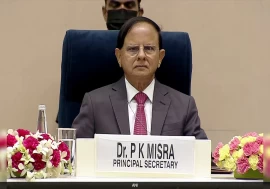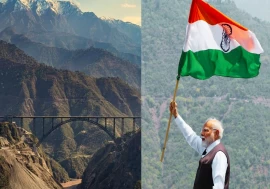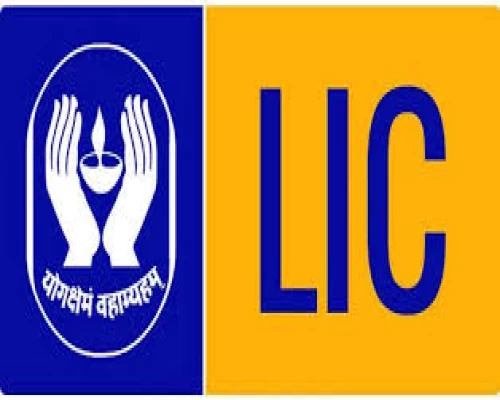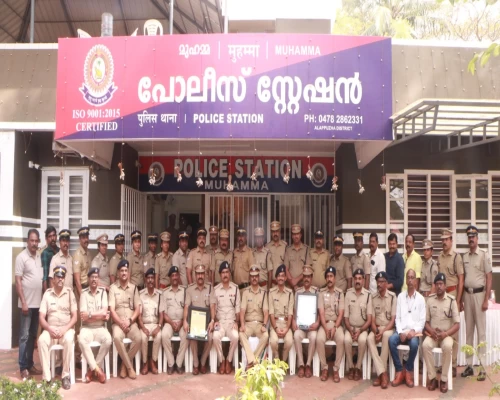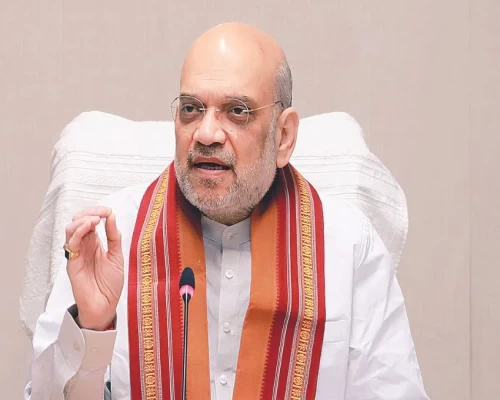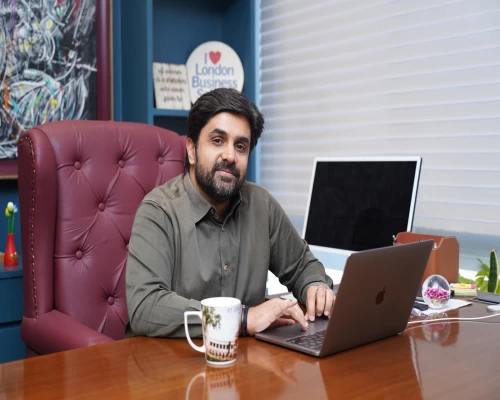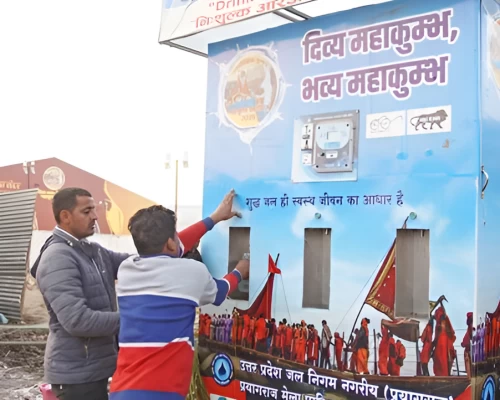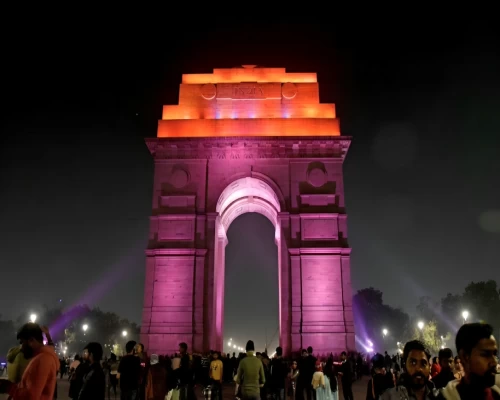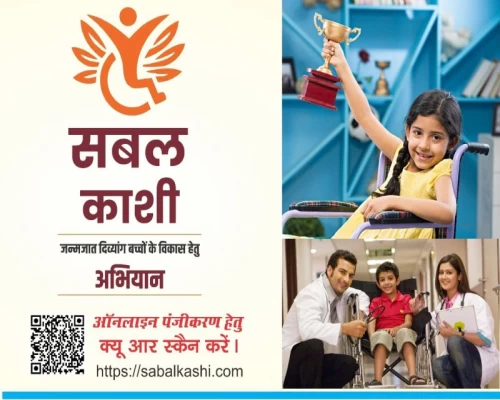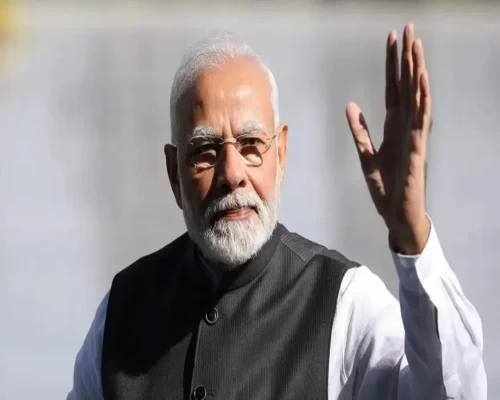
Water is the key to our sustainable development but we don’t care much so far as conserving and harvesting water is concerned. We all should be part of every water conservation effort, because more than 50 per cent of our population has no access to safe drinking water and about 200,000 people die every year for lack of access to safe water in India. “We need to save water for the coming generations, our growing children. They will land in a major problem if we don’t act now,” said Indian Railway Service of Engineers (IRSE) officer and ‘Water Hero’ Pratham Agrawal in an exclusive conversation with Rajeev R of Bureaucrats India, who has done a phenomenal job in the field of water conservation and harvesting.
“There is a need to make the most of MGNREGS. This scheme has tremendous potential to improve poor people’s ease of life and create assets at the grassroots level for sustainable development,” said added Pratham, currently posted as Divisional Engineer, Indian Railways, Solapur, Maharashtra. Here Is The Full Interview:
How did you become a Water Hero? Tell us about the story which helped you win the laurel of Water Hero from the Union Jal Shakti Ministry.
To be very frank, ‘Water Hero’ is a big word and in the current scenario, I feel everyone should and need to be a water hero if we are to solve the problem of water crisis. Since childhood, I have always had this obsession of saving water. Once I had joined Indian Railways as an engineer, I was in a position of authority to save water. In my first posting tenure, I managed to install roof top rainwater harvesting systems in all railway buildings in my jurisdiction. However, for me, that was not enough. Once I finished with all the buildings, I then turned to my railway sites where with the help of MGNREGS, I was able to build rain water harvesting structures to save water. I usually have a tendency to go through the website of the Government of India, which has a lot of crowd participation activities and that is where I stumbled upon this ‘Water Hero’ competition. We applied for it and the rest is history.
Water is the key to our sustainable future. We are living in a water deficient situation and yet our approach towards water conservation and harvesting is not up to the mark. How do you view human’s nonchalant attitude to a serious issue?
Humans are flesh and blood. We are creatures who are slaves of habit, religion, culture and environment. We conform to our limitations and our species is trained to react to danger which is imminent. Water crisis as an issue is creeping slowly upon us and hence the expected attitude. Our cultural and religious upbringing which demands us to immerse the ashes of those who have left heavenly abode in water bodies. Religious practices like ‘Kumbh Mela’ where lakhs of pilgrims take a plunge in holy water to wash their sins. I can’t confirm about sins but all other things do get washed away. Even current ROs are designed to waste water which is equal to the amount filtered. So as species, we are what we are and we are getting what we deserve. However during my water conservation journey, I have felt that there are very simple and practical ways of resolving our water crisis. Only thing missing in this battle is the will power to do it.
You have used MGNREGS as a tool for water conservation, which has received widespread accolades. From where did you get the idea to align Indian Railways projects to water conservation through MGNREGS?
Most of the funding of MGNREGS is diverted towards water conservation activities and the best part is that it is quite easy to understand and visualize such activities at the grass root level. My goal was to utilize the excess land margins available with railways beside the railway track for water conservation which was easily understood by the state administration and much of the credit goes to the state department to formalize this into a policy. Once the idea was understood and policy was in place, it was just a matter of pursuing them for execution.
Do you think that MGNREGS as an agent for positive changes has tremendous potential to improve poor people’s ease of life and create assets at the grassroots level for sustainable development?
Yes, I do believe it. Many studies have proven the power of MGNREGS for bringing socio-economic transformation. I particularly liked the fact that this scheme cuts across the administrative hurdles. In fact, I remember a phrase used by one of our former Prime Ministers that for every rupee spent by the government, only 18 paise reaches the ground. This scheme was initially marred with questions of efficacy and leakages but over the years, it has undergone tremendous transformation and stood the test of time. In its current state, it is the best tool to improve poor people’s ease of life.
As an Assistant Divisional Engineer at Ongole, Vijayawada division, South Central Railways, your Subdivision was declared the winner for the ‘Water Hero Award’ for the month of April 2020 by the Union Ministry of Jal Shakthi. Did you expect that such a great compliment was on the way to your kitty?
I wasn’t expecting this accolade however it feels good to be recognized.
Ongole Sub-Division is spread over two districts, namely, Prakasam and Nellore. You had to deal with multiple stakeholders including Gram Panchayats and Zila Parishads. How did you manage?
Persistence was the key here. It took me close to a year to meet all the concerned state government officials and stakeholders. Most of the time, there was mild neglect to our mission but I didn’t give up. Incidentally, I had one big learning, which I would like to share. Railways as a department are very exclusive and there isn’t much interface or interaction between us and the other state government departments. However, I tried to change that because I had a feeling that a better interface will result in better delivery of services to the public at large. Hence, I started attending Gram Sabha, Gram Parishad, Zila Parishad and Block Development meetings. In these interactions, I realized that a large fraction of issues were solvable which I made sure are solved. Thus, the trust element started enhancing and soon MGNREGS followed.
It is said that you first took up a pilot project wherein 168 labourers were engaged. This was the first milestone in the quest for achieving the convergence of MGNREGS with railways. What was the need to be so cautious to execute projects which are the need of the hour?
It is best to test projects which will have significant public impact along with huge financial implications on a small scale before giving it a green signal for national level implementation. Since this scheme was being implemented for the first time, I wanted to understand the challenges and difficulties with respect to its implementation on a small scale before taking it global.
How will the work done make a difference in people’s lives and that of Indian Railways as well? The investment seems to be quite high?
The labourers are being employed to execute the work. They are being given wages. These wages ensure their sustenance and livelihood and also socio-economic upliftment and uphold the constitutional canon of right to life with dignity. For the Indian Railways, this scheme is quite transformative as it provides an alternative source of funding for carrying out railway works.
You were also involved in formulating a new policy between South Central Railway and MGNREGS Department of Government of Andhra Pradesh, software development, website creation and quality execution procedures. Would you, please, share your experience?
The journey has been an interesting one. I used to conduct inspections once I had taken over my first posting. I used to witness that just adjacent to the railway boundary, MGNREGS labour used to conduct work. A thought struck me as to -- Why can’t we use MGNREGS in Railways? Thereafter, I started searching for some literature on this and stumbled upon policy documents dated 2014. In those documents, there was talk of convergence but that scheme hadn’t taken off on ground. I then started moving around with the policy and showed it to my state counterparts. I got the support of one BDO. We initiated the pilot project in his section which overlapped with my jurisdiction and then documented the challenges and learnings.
I then showcased those learnings to all the BDOs covering my section. Now during the execution of works throughout my section, I realized that some new works could be undertaken which will be better suited to the regional terrain and that is where the talk of new policy came. I then met with the state administration and after slight pursuit, we managed to not only construct but launch a new policy which was more suited to the region. Soon after we developed a new mobile application from where work estimates could be generated. Soon after, a new link in the MGNREGS website for Railways was also developed. Quality execution procedures were basically common sense procedures developed during working to maximize output which were adhered with strict discipline.
As a Civil Servant, what kind of exposure do you get in Indian Railways as compared to other branches of Civil Services like IAS, IPS or IRS?
I feel that the exposure we get in this service is unparalleled. Train running is a massive exercise and you would be surprised to hear that I have to interact with close to 10 departments regularly. In our work, there is an inherent contradiction to balance safety, punctuality and timely delivery of services as well as stay within the bounds of the rules which results in us being on our toes almost all the time. It would be unfair to compare my service to others but from my experience, I feel that my service is the best in the country.
You are also one of the most sought speakers on MGNRES. You have delivered a number of talks on various platforms. Do you think that people are really serious about water conservation and MGNRES?
To be honest -- No! A normal citizen's lifetime is spent in the fight for Roti, Kapda and Makaan. After delivering so many talks and interacting with many people – the general impression I have gathered is -- Government Ka Kaam Hai.
Any moment which you would like to share with us as the best one in your career so far? There must be many in your case?
For a government servant, the crowning moment is when he or she can create a legacy that can stand the test of time. In my case too, the best one happened a few days back when I received a phone call after two years from the state government official of MGNREGS, Andhra Pradesh, stating that not only the work is going on but has even proliferated. So for me, the best moment in my career has been that phone call.
Tell us something about your family and the great synergy you, which enables you to be so innovative and on the path of exploring something new!
I am a third generation railway man and to serve my nation in the capacity of a railway man has been my biggest honour. I have been blessed with a son. He is two years old now. When I look at his face, I feel that I need to fight for his future. I feel that at our leadership positions, it is criminal to just stick to our stated job descriptions and as they say – if not now, then when? And if not me, then who?
Last but not the least, what will be your piece of advice for those who are aspiring to join Civil Services. How should they prepare themselves for the examination?
You see, I have been asked this question many times as to whether Civil Services are better or private sector jobs are better. It is an eternal debate between power and money. What is our final goal in life? To sum up all of this, I have let the wise men guide me. The great souls whom I admire like Gandhi, Kalam -- all have stated that service to others is the way to lead your life. So my advice to all aspirants is -- find ways and means to help others irrespective of which level you belong to. If your heart is in the right place, success will always come to you which will be more lasting.


